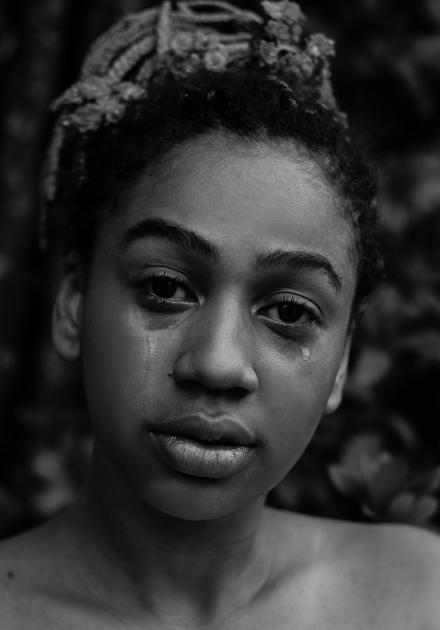As women navigate the complexities of menopause, one often overlooked issue is hair loss and hormonal imbalance. This challenging period can bring feelings of frustration and uncertainty, as many experience changes in their bodies that feel out of their control. Understanding the connection between hormonal shifts and hair loss is essential in reclaiming that sense of vitality and confidence.
It’s common for women over 30 to silently endure issues such as fatigue and anxiety alongside physical changes. Amid the whirlwind of emotions and physical symptoms, you might find yourself wondering what’s causing these transformations. Hair loss and hormonal imbalance during menopause is a reality for countless women, and addressing it holistically can pave the way towards solutions.
The Calm Reset — 7 Days to Feel Steady, Kind & In Control Again - Only $2.99
Gentle guidance trusted by our community.
Many have discovered light at the end of the tunnel. See here how many women are solving this without heavy medications and reclaiming their selves again!
Understanding Menopause and Its Symptoms
Menopause is a natural phase in every woman’s life, marking the end of her reproductive years. Typically occurring between the ages of 45 and 55, menopause brings significant hormonal fluctuations. These changes can lead to various symptoms, which may include:
- Hot Flashes: Sudden feelings of warmth that can spread over the body, often causing sweating.
- Night Sweats: Hot flashes that occur at night, disrupting sleep.
- Weight Gain: Many women notice a shift in body weight and fat distribution during menopause.
- Mood Swings: Increased irritability and emotional ups and downs can occur.
- Fatigue: A common symptom, impacting daily energy levels.
- Hair Changes: This includes thinning hair or hair loss, which can be distressing for many.
The Impact of Hormonal Changes on Hair Health
Hormonal changes during menopause significantly impact hair health. Estrogen and progesterone levels decline, which can result in:
- Thinner Hair: Hair may not grow as thick as it used to, leading to a more noticeable scalp.
- Hair Loss: Some women experience increased shedding or noticeable bald patches.
- Changes in Hair Texture: Hair may become drier, coarser, or more brittle.
Understanding these changes is crucial. They are not just cosmetic; they can affect how you feel about yourself, increasing anxiety and self-consciousness.
Common Myths About Hair Loss in Menopause
With the onset of menopause, many myths surrounding hair loss can make the situation feel more daunting:
- Myth 1: All women will experience hair loss during menopause. Truth: Not every woman will face this issue. Genetics, overall health, and individual hormonal changes play significant roles.
- Myth 2: Hair loss is irreversible. Truth: In many cases, hair may regain its fullness with the right treatment and care.
- Myth 3: Hair loss is solely due to age. Truth: While age influences hair loss, hormonal imbalances during menopause can also trigger it.
Separating fact from fiction is essential for managing expectations and reducing anxiety regarding hair changes.
Emotional Effects of Hair Loss
The emotional toll of hair loss can be profound. Many women feel:
- Self-Esteem Issues: Losing hair often affects self-image, leading to decreased confidence.
- Anxiety and Depression: The psychological impact can lead to feelings of sadness and worry.
- Social Withdrawal: Some women may avoid social situations due to embarrassment over their hair loss.
These emotional aspects are valid and should be acknowledged. It’s crucial to talk about these feelings with trusted friends or a professional, understanding you are not alone in this journey.
Exploring Natural Remedies for Hair Loss
Many women seek natural remedies for their hair loss during menopause. Some popular options include:
- Aloe Vera: Known to promote hair growth and soothe the scalp.
- Essential Oils: Oils like rosemary and lavender can stimulate hair follicles.
- Herbal Supplements: Saw palmetto and ginseng may help balance hormones and strengthen hair.
While natural remedies can provide relief, results may vary, and patience is required. Exploring various options allows women to identify what works best for them.
Nutritional Support for Hormonal Balance
Nutrition plays a critical role in supporting hormonal balance. Key nutrients to focus on include:
- Omega-3 Fatty Acids: Found in fish, flaxseeds, and walnuts, they support skin and hair health.
- Phytoestrogens: Foods such as soy, flaxseeds, and whole grains can help mimic estrogen and balance hormones.
- Vitamins and Minerals: Zinc, iron, and vitamins A, C, and D contribute significantly to hair health.
Investing in a balanced diet can empower women and enhance their health during this transitional phase.
The Role of Stress in Hair Loss
Stress is a well-known factor affecting hair health. During menopause, women often deal with increased stress levels due to life changes. This can lead to:
- Telogen Effluvium: A temporary hair loss condition triggered by stress.
- Worsened Mood Swings: Stress can amplify emotional symptoms already related to menopause.
Managing stress through practices such as yoga, meditation, or even supportive conversations can greatly benefit overall well-being.
When to Seek Professional Help
If hair loss becomes severe or is accompanied by other troubling symptoms, it might be time to consult a professional. Here are some signs to watch for:
- Excessive Shedding: Loss of more than 100 strands per day.
- Bald Patches: Spot baldness that appears suddenly.
- Skin Changes: Noticeable scalp irritation or flakiness.
A healthcare provider can help determine the underlying causes and recommend appropriate treatments tailored to individual needs.
Empowering Yourself During This Transition
Empowerment during menopause means embracing changes and taking control of personal health. Here are some empowering strategies:
- Educate Yourself: Knowledge is power. Understanding what to expect can reduce anxiety.
- Connect with Others: Seek support groups or friends who understand your experience.
- Prioritize Self-Care: Regular exercise, socializing, and hobbies can boost happiness and self-esteem.
Each step taken towards empowerment and awareness can transform the experience into a journey of self-discovery and strength.
Success Stories: Women Who Found Relief
Many women have navigated the challenges of menopause successfully, finding relief in various ways:
- Ann, 52: Tried herbal supplements and saw significant improvements in her hair health.
- Linda, 49: Focused on nutrition, discovering new recipes that energized her and supported her hormonal balance.
- Cathy, 55: Practiced mindfulness and meditation to manage stress and emotional changes.
Each story is a reminder of resilience and the potential for positive change. Many women have found solutions to their struggles and so can you. If you’re curious about how to address these challenges without heavy medications, see here how many women are resolving this without heavy drugs.
Remember, you are not alone. With small steps, you can address your symptoms and transition through this phase of life with grace and strength. You, too, can find relief and regain your confidence.
The Calm Reset — 7 Days to Feel Steady, Kind & In Control Again - Only $2.99
Gentle guidance trusted by our community.







